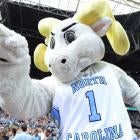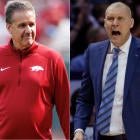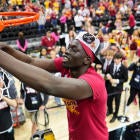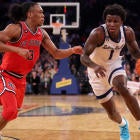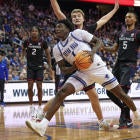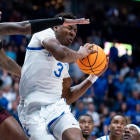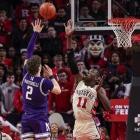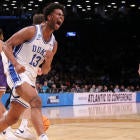The head of an influential national accreditation agency that investigated North Carolina told CBS Sports she was surprised the NCAA didn't do more in the academic fraud case that concluded Friday.
"Our board debated," said Belle Whelan, president of the Southern Association of Colleges and Schools Commission, one of the two largest accreditation agencies in the country. "There were some that wanted to drop them."
That means ending North Carolina's accreditation as an institution of higher learning. Oklahoma assistant professor and NCAA reformer Gerald Gurney told CBS Sports in May 2016 that "students simply would not attend the university if it were not accredited."
The Southern Association put North Carolina on probation for a year in 2015 for "non-compliance with the principle … of academic integrity." North Carolina responded by instituting a series of sweeping reforms, and the probation ended in June 2016.
However, after reading the NCAA's report on Friday, Whelan said every student who took the infamous classes "had an extra benefit."
The classes were taught by a secretary who had no teaching credentials and was an admitted fan of North Carolina basketball. The NCAA concluded there was no extra benefit to North Carolina athletics because the classes in question were available to regular students.
In the end, the probation by Whelan's organization was the most significant penalty against North Carolina in a case that reached back 18 years and was investigated by the NCAA for six years.
Whelan previously told CBS Sports there was no case similar to North Carolina's investigated by the Southern Association going back at least 40 years.
"What surprised me is [the NCAA] waited so long to address this in the first place," Whelan said.
UNC commissioned at least six different investigations. The NCAA reopened its investigation after a series of stories in the Raleigh News & Observer in 2014.
On Friday, the NCAA concluded it couldn't make a finding of academic fraud due to a 2014 rules definition that allows schools to define academic fraud on their own.












